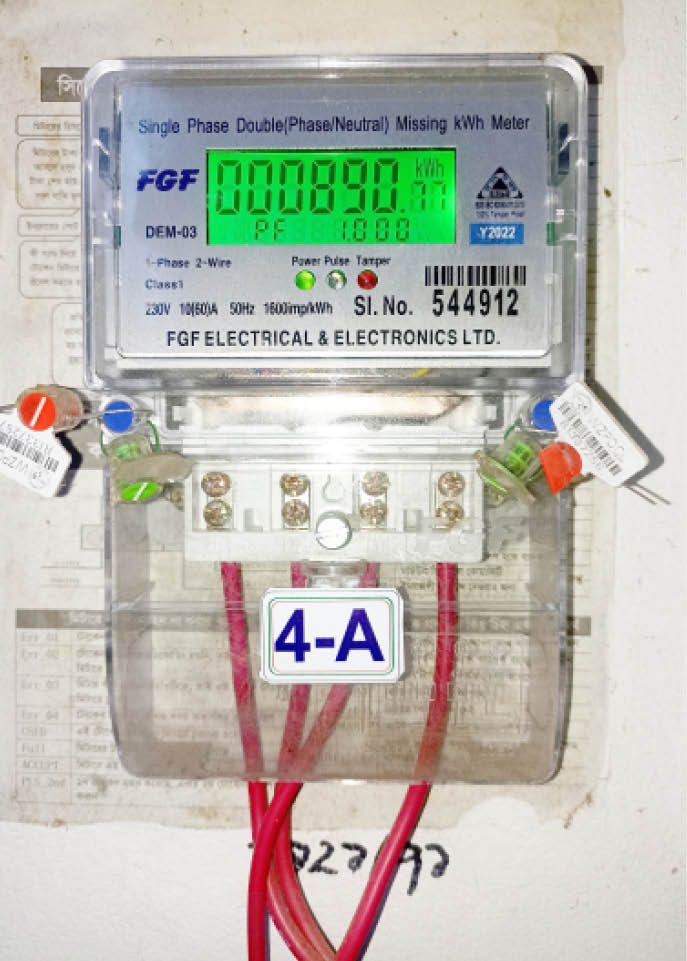On Wednesday, January 31, 2024, the Minister of Power, Chief Adebayo Adelabu, came up with the shocking proposition of migration to “full cost-reflective tariff regime” of zero subsidy for electricity. For the minister, the sure way to escape the energy crisis bedeviling Nigeria and Nigerians is to stop electricity tariffs’ subsidy, just like the fuel subsidy.
Adelabu noted that Nigerians need to have a conversation on whether to pay for the real price of electricity, and that even within the West African sub-region, Nigerians pay the lowest electricity tariff. He added that Ghana, Ivory Coast and Niger Republic pay more than double the tariffs Nigerians pay.
The minister, who spoke after visiting the 750 megawatts (mw) Olorunsogo Power Generating Plant in Ogun State and the 500mw Omotosho Generating Plant in Ondo State, said: “If our government is not ready to fund subsidies, it is actually better for us to migrate to a fully-cost-reflective tariff, because liquidity is a major issue in the sector, which has led to a huge debt being owed power generating companies. And once they are owed, they are also unable to pay the gas suppliers. When the gas suppliers are not paid, they will be unwilling to supply regular gas to them.”
Adelabu has only toed the familiar refrain of government officials who see anything subsidy as inimical to Nigeria’s interests.
Boy, 13, remanded for defiling neighbour’s daughter
Court vacates restraining order against Benue APC chairman
The minister has added fresh fire to the burning issue of subsidy, which could trigger another round of price increase across board. The minister forgot that reports of such tariff removal were rife late last year that the Nigerian Electricity Regulatory Commission (NERC) had to clear the air, stating that there were no plans to increase electricity tariffs on January 1st, 2024. Now, he has rekindled the issue, adding to the anxiety of Nigerians, who are battling the effect of rampaging inflation.
In any case, the minister seemed to have forgotten that in November 2023, he personally announced that President Bola Ahmed Tinubu had stopped the implementation of a hike in electricity tariff, insisting that subsidy remains.
We reject the call for increase in electricity tariff, especially at this point. We find it insensitive that such a call can be made with everything Nigerians are currently dealing with. Daily Trust believes that subsidy on its own is not a bad idea as it remains the only thing the average citizen benefits from government. It is not ordinarily a problem as it remains a direct or indirect payment by government to businesses or individuals to promote consumption and production. The problem lies with its implementation and we believe that any challenge with that can be addressed.
This newspaper urges the minister to forget the removal call and instead lead in taking a holistic look at the implementation of the national power reform programmes and enthrone an efficient electricity sector. Removal of electricity tariffs’ subsidy should not be part of any discussion now. He should fix the rot in the sector and stop taking the easy, familiar path of piling up more burden on Nigerians whenever the government fails to do what it ought to do.
The electricity tariff, which was increased in the last eight years by over 168%, saw Nigerians pay between N16 and N31kWh in 2015 to between N55kWh to N71kWh, depending on the tariff class. Yet, it did not solve the challenges bedeviling the sector. The supply gaps remain huge such that the nation’s homes and its commercial and industrial sectors rely on self-generated power, which is drawing back the country’s economic growth. Most impacted are the small-scale businesses, including boutiques, cyber cafes, salons, tailoring and grocery shops, which are mostly serviced by small-scale petrol generators.
The International Monetary Fund (IMF) estimates that Nigeria loses as much as $29 billion; that is 5.8% of its annual Gross Domestic Product (GDP), due to lack of energy and unreliable power supply.
The minister could also look into the issue of frequent collapse of the national grid. According to ESI Africa, the continent’s leading power and energy journal, in the last nine years, Nigeria’s national electricity grid has collapsed more than 200 times, resulting in widespread blackouts. In 2022, Nigeria’s national electricity grid collapsed 17 times. It collapsed three consecutive times – September 14, 19 and December 11, in 2023. And on Sunday, February 4, 2023, the national grid collapsed again, leading to a nationwide power outage.
Daily Trust urges the Ministry of Power to streamline the sector and give Nigerians regular and efficient power supply. Nigeria has installed capacity of just 12,500 megawatts, less than 20% of its electricity needs and can for now generate only a paltry 3,000 megawatts, which it still cannot effectively transmit and distribute. This is not acceptable.
We also call on President Tinubu to intervene and insist that the sector implements its policies and regulations towards provision of adequate and reliable energy for the people. In this vein, the president should summon the Nigerian Electricity Supply Industry (NESI), comprising the Federal Ministry of Power, the NERC, the 25 Electricity Generation Companies (GenCos), Transmission Company of Nigeria (TCN), the Electricity Distribution Companies (DisCos), the Nigerian Bulk Electricity Trading Plc and other stakeholders and formulate policies that will make electricity supply more stable.
What Nigerians need now is uninterrupted power supply, not additional burden.

 Join Daily Trust WhatsApp Community For Quick Access To News and Happenings Around You.
Join Daily Trust WhatsApp Community For Quick Access To News and Happenings Around You.